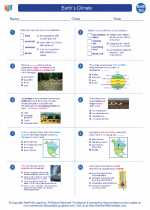Mollusca
Mollusca is a large and diverse phylum of invertebrate animals, commonly referred to as mollusks. This phylum includes well-known organisms such as snails, slugs, clams, oysters, octopuses, and squids. Mollusks are found in marine, freshwater, and terrestrial environments, and exhibit a wide range of anatomical and ecological diversity.
Characteristics of Mollusks
Mollusks share several key characteristics:
- Soft body: Mollusks typically have a soft body that is often protected by a hard shell made of calcium carbonate. However, not all mollusks have shells.
- Mantle: They possess a mantle, which is a thin layer of tissue that covers the body and may secrete the shell in shelled mollusks.
- Radula: Many mollusks have a radula, a specialized feeding organ with tiny, chitinous teeth used for scraping food.
- Foot: Mollusks often have a muscular foot used for locomotion, attachment, or burrowing.
Classifications of Mollusks
Mollusks are classified into several classes based on their anatomical features and ecological adaptations. Some of the major classes of mollusks include:
- Gastropoda: This class includes snails and slugs, which are characterized by a single, coiled shell (in most species) and a well-developed foot for locomotion.
- Bivalvia: Bivalves such as clams, oysters, and mussels have two hinged shells that are connected by a strong adductor muscle. They are filter feeders, using a siphon to draw in water and filter out food particles.
- Cephalopoda: This class includes squids, octopuses, and nautiluses, which are characterized by a distinct head (cephalopod means "head foot") and well-developed sensory and nervous systems. Many cephalopods are highly intelligent and exhibit complex behaviors.
- Polyplacophora: Chitons are members of this class, and they are characterized by their oval-shaped, flattened bodies and eight dorsal plates that provide protection.
Ecological Importance
Mollusks play essential roles in various ecosystems. They serve as food sources for numerous organisms, contribute to nutrient cycling, and some species are important indicators of environmental health. Additionally, mollusks have economic importance for humans, as they are harvested for food and their shells are used in various industries.
Study Guide
When studying mollusks, it's important to focus on the following aspects:
- Understanding the key characteristics of mollusks and the significance of these features in their biology.
- Learning the major classes of mollusks and being able to identify specific examples within each class.
- Exploring the ecological roles of mollusks and their interactions within different ecosystems.
- Recognizing the economic and cultural importance of mollusks to human societies.
Additionally, hands-on activities such as observing live mollusks, examining shells, and studying anatomical structures can greatly enhance the learning experience.
Good luck with your studies!
[Mollusca] Related Worksheets and Study Guides:
.◂Earth Science Worksheets and Study Guides High School. Earth`s Climate

 Worksheet/Answer key
Worksheet/Answer key
 Worksheet/Answer key
Worksheet/Answer key
 Vocabulary/Answer key
Vocabulary/Answer key
 Vocabulary/Answer key
Vocabulary/Answer key
 Vocabulary/Answer key
Vocabulary/Answer key
